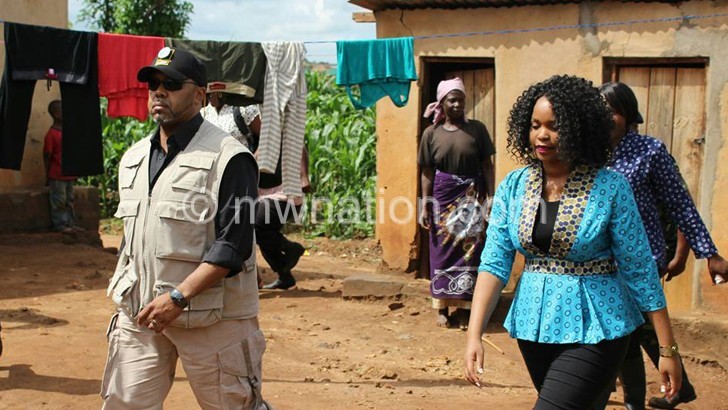Weather shocks might undermine economic performance—analysts
Economic analysts have warned that drought and floods forecast in the 2017/18 growing season might undermine the positive economic growth the country’s economy has experienced since 2016.
The analysts were speaking amid a forecast by the Southern Regional Climate Outlook of a repeat of the 2015 weather patterns in which some parts of southern Africa region, including Malawi, experienced extreme droughts and episodes of heavy flooding.

The Southern African Development Community (Sadc) climate experts have also predicted the first rains will result in some countries in the region experiencing devastating drought while the second phase of rains are expected to result in floods.
Commenting on the predictions, Catholic University dean of social sciences Gilbert Kachamba said the country’s economy might not withstand the weather-related shocks if they occurred in the 2017/18 growing season.
“Our economy, the way it is now, is not ready to handle these weather related shocks because we are still on the recovery path. We haven’t fully recovered from the droughts and floods of the 2015/16 growing season.
“If you look at our [economic] situation now, we do not have the capacity to withstand another shock like that,” Kachamba said.
On his part, Chancellor College economist Ben Kalua warned that the droughts and floods that have been projected for the 2017/18 growing season could affect the harvests for the next 18 months, resulting in a negative spillover on inflation and the bank rate.
“If we are hit by the floods or the droughts, it will mean that the single digit inflation rate will not hold. We will regress to double digit inflation rates. The central bank rate will go up since it is heavily influenced by the food supply in Malawi which will in turn cause an increase in the [commercial] bank rates,” Kalua said.
Meanwhile, Ministry of Finance, Economic Planning and Development spokesperson Davis Sado has conceded that such weather shocks might have a negative impact on the economy.
However, he assured Malawians that government is implementing measures that will ensure that any negative effects will be kept in check.
“Government is yet to meet to discuss the same [predicted droughts and floods]. Such shocks do affect the economy of the country. In our planning phase we have factored in the advent of calamities and disasters so that such weather-related shocks do not negatively influence the economy.
“The planning will require a multi-sectoral approach but we can only plan after we get a magnitude of the shocks [droughts and floods]”.
Similar floods and droughts during the 2014/15 and 2015/16 growing seasons had adverse impacts on the national economy such as increasing inflation and slowing down economic growth.
The seventh and eighth reviews of the Extended Credit Facility programme released by the International Monetary Fund in June 2016, cited the floods and droughts in the 2014-16 growing seasons as the major contributors to the economic underperformance in the 2015/16 and 2017/18 fiscal years.
According to the findings of the fund, Malawi’s gross domestic product growth declined from 5.7 percent in 2014 to 2.3 percent in 2016 while inflation rose from 18 percent in 2014 to 20.9 percent in 2016, reaching 24.9 percent in December 2015, the highest inflation rate since 2012. n





